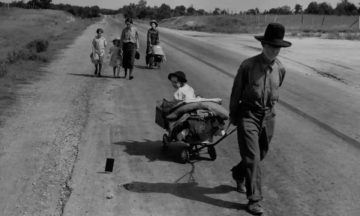Monica Potts in The Guardian:
 For all its wealth and devotion to the myth of the American Dream, the US allows many more of its citizens to live in poverty than other wealthy countries do. We hold the 10th highest poverty rate in a 2021 ranking of OECD countries, with almost 38 million Americans living in poverty. Even that number is calculated using an outdated measure that probably doesn’t fully account for the number of families that are truly struggling. How is it that a country that prides itself on success and progress can allow so many of its citizens to go without? It’s an urgent question we’ve been writing about – failing to solve – for a long time.
For all its wealth and devotion to the myth of the American Dream, the US allows many more of its citizens to live in poverty than other wealthy countries do. We hold the 10th highest poverty rate in a 2021 ranking of OECD countries, with almost 38 million Americans living in poverty. Even that number is calculated using an outdated measure that probably doesn’t fully account for the number of families that are truly struggling. How is it that a country that prides itself on success and progress can allow so many of its citizens to go without? It’s an urgent question we’ve been writing about – failing to solve – for a long time.
The books about poverty that resonate most for me come in two forms. Novels and narrative nonfiction books often take a personal, sometimes painfully vivid and honest portrayal of a family or individual in a way that can personalise the potentially abstract issue for readers. My own book, The Forgotten Girls, follows in this tradition. To write it, I returned home to my small, poor town in the Arkansas Ozarks after many years of living in big cities on the east coast to find my childhood best friend: through our reconnection, I explored the ways that the different places we lived marked our adult lives.
More here.
